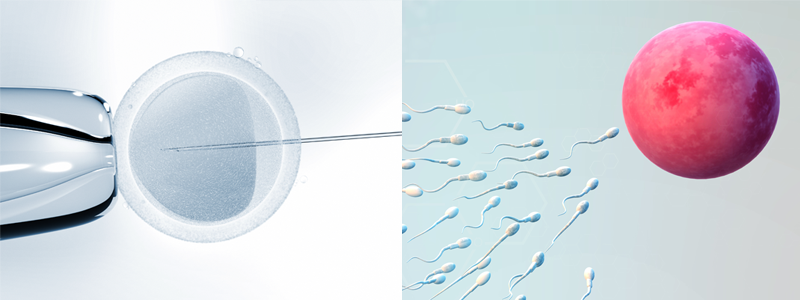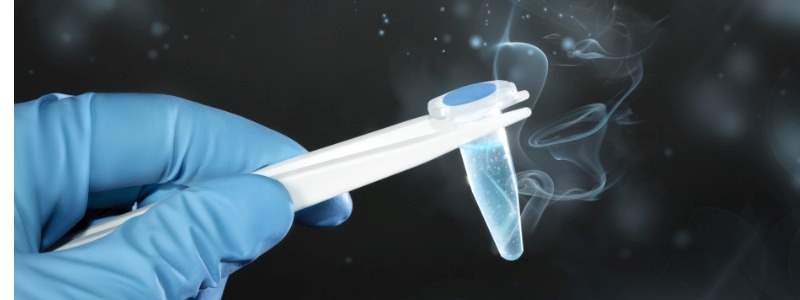In the field of fertility, we understand that there are a lot of terms, acronyms and abbreviations to keep track of and understand. So, we’ve created our own fertility glossary so that you’re in the know from the get-go when it comes to your fertility journey:
Understanding hormones
AMH: stands for Anti-Mullerian Hormone. This is a protein hormone produced by cells within the ovary. Understanding your AMH level tells you how good your egg reserve is and this gives the doctor an indication of how fertile you are.
AMH levels are naturally lower in older women (particularly over the age of 40) and higher in women with Polycystic Ovaries (PCO) or Polycystic Ovary Syndrome (PCOS). CREATE Fertility are specialists in treating women with low AMH levels.
FSH: is Follicle Stimulating Hormone. FSH is a hormone produced by the pituitary gland. This stimulates the growth of follicles in the ovary before the release of an egg. A high reading of FSH can be an indication of a poor ovarian reserve.
What we measure
Blood-flow: The blood flow to your uterus, ovaries and follicles gives you an idea of how good your ovarian-reserve is. A cell in the body that has good blood flow is likely to be a healthy cell; it has received a good supply of oxygen and nutrients. By looking at blood flow, we can see which eggs might be of better quality.
Egg-reserve/ovarian-reserve: is the term that is used to determine the capacity of the ovary. The ovary houses the egg cells that are most likely to fertilise and result in a healthy pregnancy.
Follicle count: We count follicles that are between 2-6mm in the ovary. This is because if you have plenty of follicles of this measurement when you come in for your scan, this indicates a good ovarian reserve.
Fertility treatments & procedures
AI: stands for Artificial Insemination. This is a treatment that involves directly inserting sperm into a woman's womb.
Egg Freezing: Egg freezing is a method of fertility preservation, which allows women to freeze eggs for later use when they might like to start a family.
Egg Sharing: Egg sharing enables women who are willing to share their eggs to have fertility treatment at a significantly reduced price. The treatment cycle is carried out exactly as it would be otherwise, but after the egg collection half of the eggs collected are given to an egg recipient who pays the cost of treatment.
Embryo Freezing: once the egg and the sperm have successfully fertilised, we can freeze the embryo created. We use a newly developed freezing method called vitrification to rapidly freeze the embryo to ensure the best preservation. This will then be inserted back into the womb later.
Endometrial Scratching: a procedure that can be carried out before the embryo transfer, where the lining of the womb is gently scratched to help the embryo to implant more successfully.
HyCosy: Hysterosalpingo-contrast-sonography (usually called HyCoSy), is a straightforward procedure which is used to look at the fallopian tubes and to check for abnormalities of the uterus and ovaries. This is where a dye is passed into the uterus, and the doctor tracks it using an ultrasound scan.
Hysteroscopy: Hysteroscopy is a procedure where a very thin telescope camera is used to view the inside of your womb. It is used to investigate different conditions of the uterus such as polyps, fibroids, septum or scarring inside the uterine cavity.
ICSI: stands for Intracytoplasmic Sperm Injection. This is where an individual sperm cell is inserted directly into the egg cell.
Implantation: after the successful fertilisation of the egg and the sperm, forming an embryo, the embryo is placed back into the womb.
IUI: IUI involves directly inserting specially washed sperm into a woman’s womb at the most fertile point of her cycle. Doctors use hormone blood tests and monitoring scans to keep track of the cycle and pinpoint the time at which ovulation occurs.
IVF: stands for In Vitro Fertilisation, it involves the fertilisation of an egg and a sperm outside of the body. ‘In vitro’ means ‘in glass’.
Mild Stimulation IVF: a form of stimulated IVF where fewere fertility drugs are used to achieve a mild response and works within a woman's natural cycle.
Natural IVF: In Natural Cycle IVF, we collect one egg that has been naturally selected by your body during your menstrual cycle and then we fertilise it in the laboratory. This is carried out without the use of any fertility drugs.
Natural Modified IVF: Modified Natural Cycle IVF is a form of Natural Cycle IVF. A small dose of medication is given for 3-4 days in order to keep the follicles healthy and growing. This allows us to collect 1-2 eggs from a cycle.
Semen Analysis/ Male MOT: Our detailed semen analysis looks at the density, morphology and mobility of your sperm.
Sperm Freezing: we perform Sperm Freezing through vitrification. The sample will be frozen by our embryologists using vitrification technology, an advanced fast-freezing. Once frozen, the sperm can be thawed at your disposal, with very high survival rates from thawing.
Common fertility problems
Azoospermia: this is when there is no sperm present in a man’s ejaculate. This can be due to blockage in the tubes that the sperm is transported through, a vasectomy, low or no sperm production in the testicle.
Endometriosis: is a common condition in women where tissue that behaves like the lining of the womb (endometrium) is found in other places such as: the fallopian tubes, the ovaries, and in or around the bladder or bowel.
Low Ovarian Reserve/Low AMH: This means that there are low numbers of developing cells in the ovaries. This indicates that your fertility status is lower, something that declines with age.
Polycystic Ovarian Syndrome (PCOS): This is where the levels of the hormones estrogen and progesterone are out of balance. This leads to the growth of ovarian cysts. CREATE are specialised in treating PCO and PCOS with tailored Mild Stimulation IVF.
Tubal Disease: a disease where women have blocked or damaged fallopian tubes.
Thyroid Disease: Infertility can be caused by diseases of the thyroid, when it is under- or over-active. Women with a thyroid disease will be given tailor-made treatment under the care of our experienced doctors.
IVF equipment
Embryoscope: is an incubator that has the right conditions for a healthy embryo to develop in the laboratory. It has a special time lapse system with a camera that continuously captures images and records them as the embryo develops.
Ultrasound 3D Advanced Doppler Scan: this is the advanced transvaginal scan that we use to assess your ovarian-reserve. This will check how healthy your uterus, ovaries and follicles are by examining the blood flow to each of them.
What may be required for some tests
Abstinence: This is the practice of refraining from sexual activity. This is required for some of our tests such as our Semen Analysis, to ensure that we receive the best sample.
What we don’t do
Down regulation: in conventional IVF, 'down regulation’ time is the 2 week period in which the woman’s natural is shut-down into a temporary menopause term using fertility drugs. The woman’s cycle is then kick-started again using fertility drugs to stimulate the ovaries.
This is not something we practice at our clinic as we do not believe that this is necessary. We work with a woman’s natural cycle, meaning that treatment time is shorter, less stressful, and safer.
Conventional IVF: Women take fertility drugs to shut-down and then restart ovulation. These drugs stimulate a woman’s eggs with the aim to collect lots of eggs. This process takes around 4-6 weeks and can cause some unpleasant side-effects.
What we do…
At CREATE Fertility, it is our duty to make treatment as stress-free and as easy as possible. Our treatment is kinder to your body with fewer drugs, fewer side effects, and a shorter time in treatment.
Another part of making your treatment easier is by making things as clear as we can. We hope that our IVF glossary will answer a few of the questions you may have about fertility and our services.
However, if you have any more questions for us, or you would like to book in for a Fertility Test or Initial Scan and Consultation please Contact Us






